"I never once thought about quitting table tennis."
Mahiro Funayama, 2nd year student, School of Humanities and Social Sciences
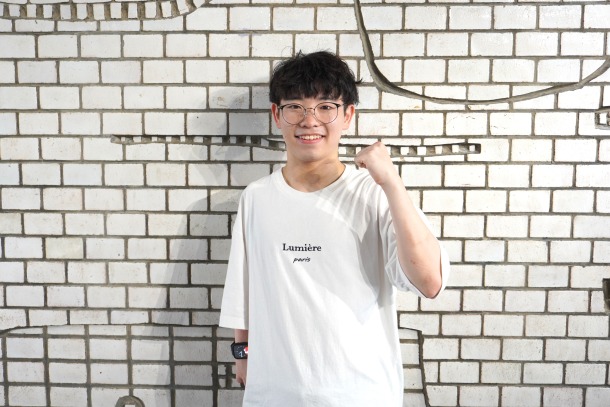
At Toyama Campus Building No. 33
Funayama lost the function of his right shoulder joint when he was diagnosed with osteosarcoma, a childhood cancer, at the age of four. Since he started playing table tennis seriously in the fifth grade of elementary school, he has been fascinated by the fun of the game and has improved his skills. He has successfully qualified to compete in the Paris 2024 Paralympic Games (hereinafter referred to as the Paris Paralympics) to be held in August 2024. We spoke to Funayama, a rising star in the para table tennis world, about the process of competing in the Paralympics, his enthusiasm, and his outlook for the future.
--What made you start playing table tennis?
It all started when I was in elementary school and went on a family trip to a ryokan (Japanese inn) and played table tennis, and discovered how much fun it was. I became obsessed with table tennis after that, and joined a club team in my hometown of Saitama City, Saitama Prefecture, when I was in the fifth grade. Saitama Prefecture has a high level of table tennis even on a national level, and when I started competing in tournaments, I was amazed by the skills of the strong players my age, and I became obsessed with wanting to become even stronger myself.
Table tennis is a delicate sport in which the trajectory of the ball changes dramatically depending on how hard you grip the racket. That's why the pleasure you feel when everything clicks together and you score is irreplaceable, and it's so fun that I've continued playing it for so long. I've never wanted to quit.
--Please tell us the story behind your qualification for the Paris Paralympics.
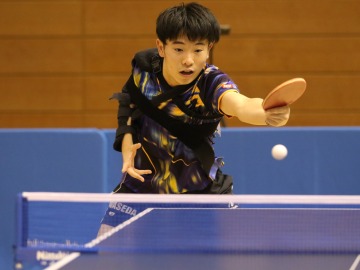
This photo was taken when he participated in the Inter-High School Championships. He fought a fierce battle against able-bodied competitors.
During my high school days, I was able to compete in the Inter-High School Championships alongside non-disabled athletes, and even after entering university, I felt a certain level of confidence in my abilities. The selection race for the Paris Paralympics began in March 2023, and I was eager to show my true abilities, but I was in a terrible state at the beginning. The Paris Paralympics will be open to players in the top 10 of the International Table Tennis Federation (ITTF) world rankings as of March 2024 for each class (※), but the rankings are reflected in points based on the results of each match, so I felt the pressure of knowing that all the results of the matches would directly affect whether or not I could participate in the Paralympics, and I was unable to play as I wanted. I knew I couldn't continue like this, so I asked my parents to check and manage my points for the time being so that I could concentrate on the match in front of me without being swayed by the points. I did my best to overcome my anxiety so that it wouldn't affect my play.
Also, I had to participate in many overseas tournaments to earn points, so I was physically exhausted not only during the matches but also during the travel. When I participated in a tournament in Brazil, the travel time by plane was 30 hours! I remember feeling relieved when all 15 tournaments involving overseas tours were over (laughs).
(*) In para table tennis, players are divided into 11 classes based on their disability. C1 to C5 are wheelchair classes, and C6 to C10 are standing classes. As the disability becomes less severe, the class number increases, and Funayama is in C10. C11 is for intellectual disabilities.
-Which selection race left the most impression on you?
The Hangzhou Asian Para Games were held in China in November 2023. It is not uncommon for there to be few spectators at the para tournaments I usually participate in, but as expected of China, a table tennis powerhouse, I was surrounded by a crowd that filled the venue. The enthusiasm of the crowd, with cheers for every play, boosted my motivation, and more than anything, I really enjoyed being able to play in such an environment, and I think it was a valuable experience.
--Please tell us how you felt and how excited you were when you secured your place in the Paris Paralympics.
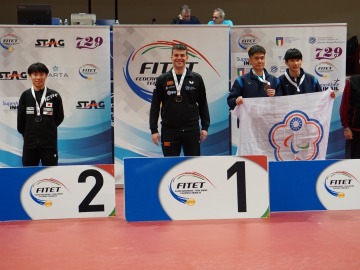
A photo from the awards ceremony of the Italian Para Open 2024. Runner-up Funayama is on the far left (Photo: Japan Para Table Tennis Association)
I started off behind and continued to participate in competitions while worrying about whether I would really be able to compete in the Paris Paralympics. That's why when I secured the right to compete, I felt a great sense of relief. It was the moment when all my efforts in competing in many competitions were rewarded.
Since I'm participating in the Paris Paralympics, I definitely want to win a medal! I think this result will have a big impact on my future table tennis career, so I'll do my best to make sure I have no regrets.
--You said that you wanted to balance your studies with table tennis even after entering university, but what made you want to go to Waseda University?
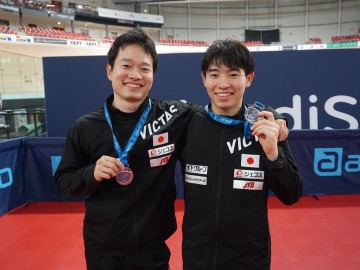
After the award ceremony of the "French Para Open 2023", with Yukihiro Iwabuchi (a former member of the Waseda University Table Tennis Club and a graduate School of Education in 2017)
The main reason was that many of my seniors in para table tennis were from the Waseda University Table Tennis Club. As I listened to the stories of my seniors who had been active at Waseda since elementary school, I realized that I could not only hone my skills, but I was also attracted to the environment in the table tennis court where people who had entered through general entrance exams and sports recommendation entrance exams could practice together without discrimination, so I wanted to join Waseda's table tennis club and aimed for Waseda University. I went on to Waseda University Senior High School which allows internal advancement and has an attractive, free school atmosphere, and I've been there ever since.
-Why did you choose School of Humanities and Social Sciences instead of School of Sport Sciences?
My high school Japanese teacher was very unique and taught me philosophical elements. That's what made me interested in philosophy, so I wrote my high school graduation thesis and chose the philosophy course in the Faculty of School of Humanities and Social Sciences at university. I like the fact that by studying philosophy, I can gain knowledge that will become the axis of my future life.
Another reason I chose School of Humanities and Social Sciences was that it is close to Waseda Campus, where the table tennis club's practice field is located, so that I can balance my studies with my table tennis practice. I try to balance my studies by concentrating my classes in the morning and using the afternoon for table tennis club practice. Sometimes I practice until around 9pm. Now that I'm a university student, I have more free time, so I'm happy that I can devote more of my time to table tennis, which I love.
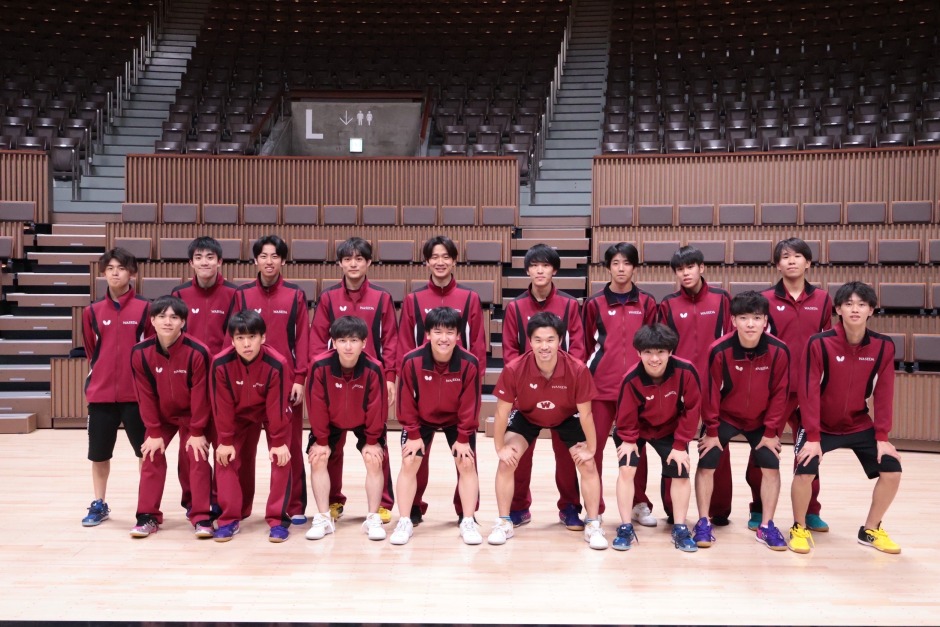
Group photo of the Waseda University Table Tennis Club. Funayama is third from the right in the front row.
--Please tell us about your future prospects.
I want to continue playing table tennis as an active player for as long as possible, so after I graduate I want to join a corporate team and continue playing table tennis. To that end, I want to do my best and bet my life on it so that I can achieve good results at the Paris Paralympics, which will be my last Paralympics as a student.
Also, because I'm in a lighter disability class, I don't feel there's a wall between para and able-bodied athletes, and that's why I want to show that "para athletes can do this well, too!" by participating in many able-bodied matches. I think that by participating in matches in both categories, I'll be able to attract a lot of attention. I want to use those expectations as motivation to work hard and make even greater strides in the world of table tennis.
No.879
Interview, text and photography: Waseda Weekly Reporter (SJC student staff)
Tanabe Saya 4th year School of Culture, Media and Society
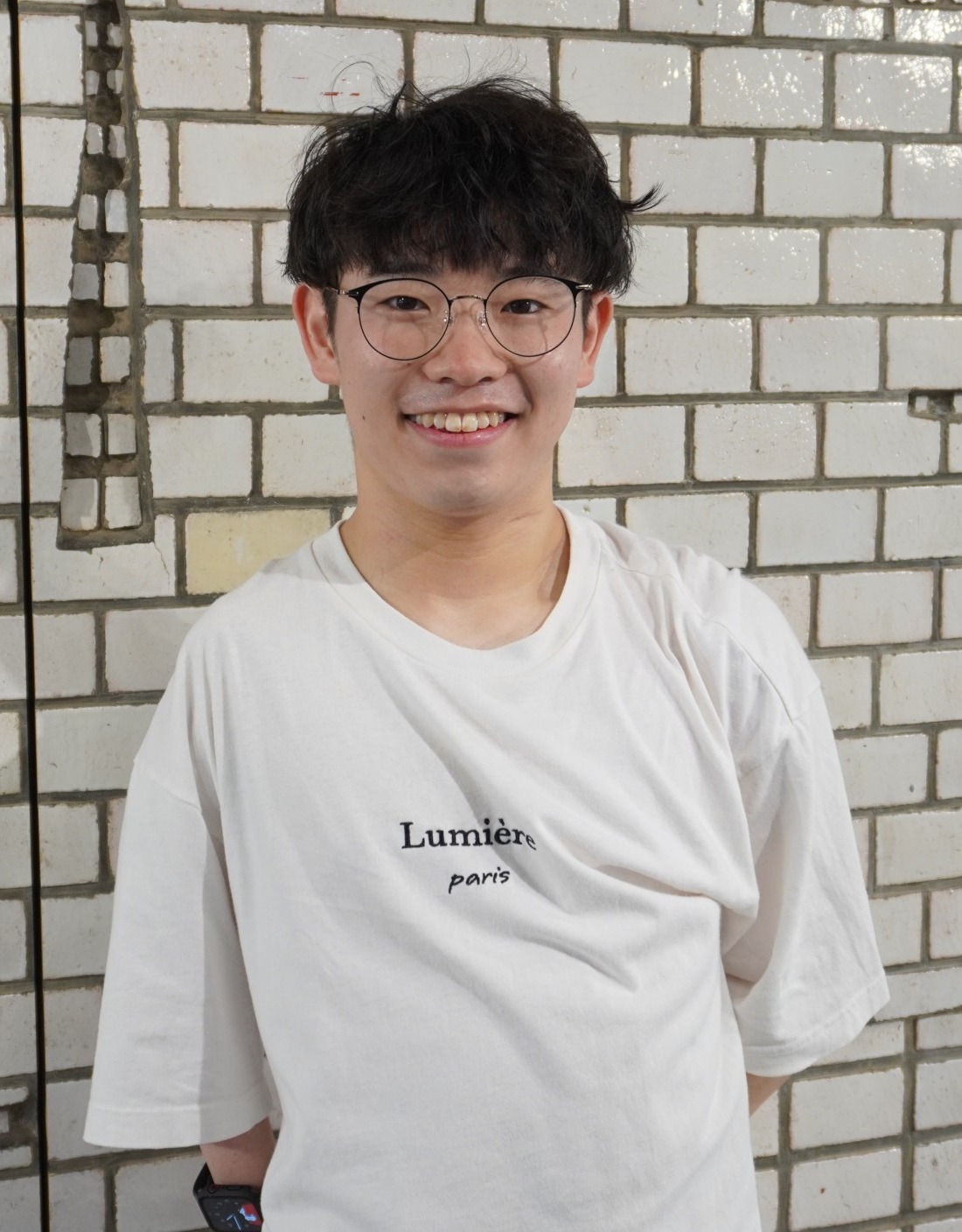
【Profile】
Born in Saitama Prefecture. Graduated from Waseda University Senior High School. He has a passion for fashion and his hobby is visiting vintage clothing stores. He says he enjoys coming across clothes of all ages and types, like a treasure hunt.

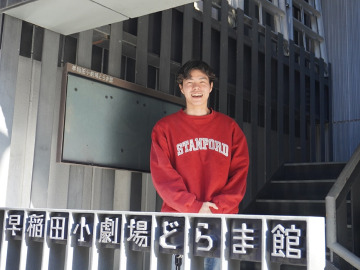
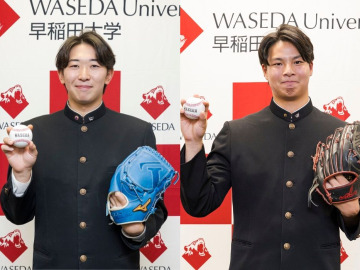
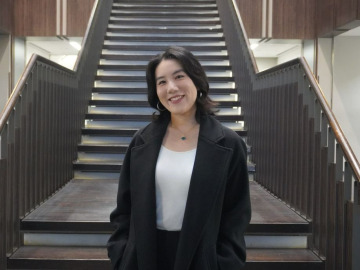
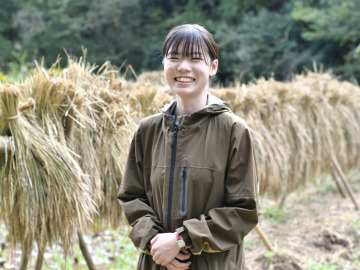

![[Save version] Map of the four main campuses](https://www.waseda.jp/inst/weekly/assets/uploads/2025/09/17cb2975123fc5103172ef60bd98608d-610x458.jpg)

